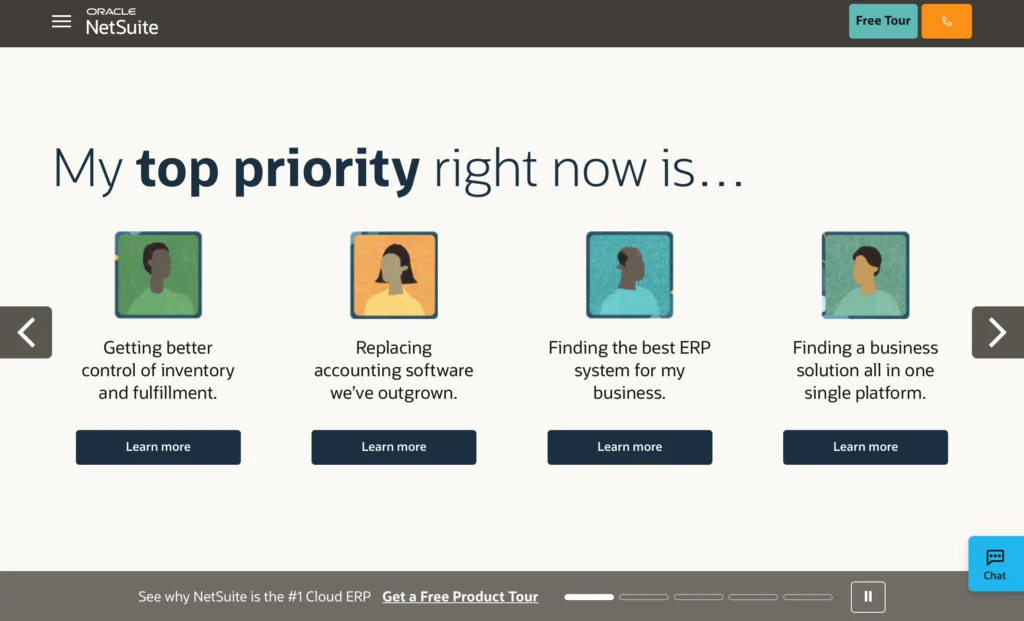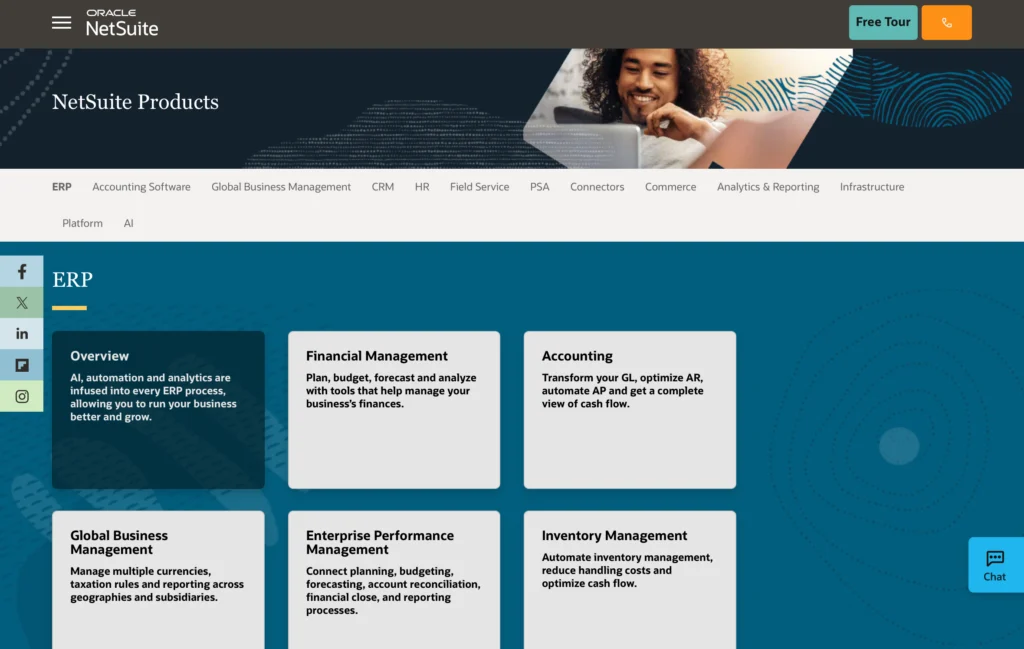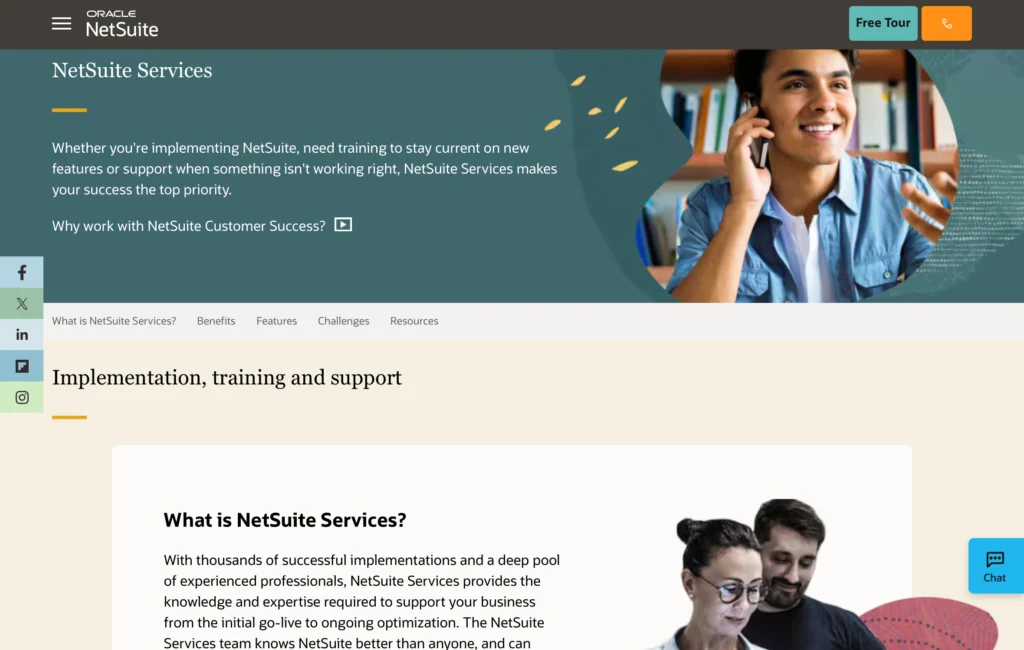The manufacturing industry is undergoing a digital revolution. Legacy systems, fragmented processes, and a lack of real-time visibility are no longer acceptable in an era where speed, agility, and precision define competitive advantage. For manufacturers looking to scale efficiently, improve margins, and meet customer demands faster, the answer lies in unified cloud-based solutions. And when it comes to cloud ERP for manufacturing, few platforms match the flexibility and power of NetSuite for manufacturing.
This article explores how NetSuite is reshaping the manufacturing landscape, from the factory floor to the C-suite. Whether you’re managing custom builds or high-volume production lines, NetSuite offers a single platform to run your business smarter, faster, and leaner.
Why Traditional Manufacturing Systems No Longer Work
Many manufacturers still rely on a patchwork of spreadsheets, on-premise software, and siloed databases. This approach makes it difficult to:
- Maintain accurate inventory records
- Plan production effectively
- Meet on-time delivery promises
- Control labor and material costs
- Scale operations across multiple locations
These inefficiencies not only reduce profitability—they also prevent manufacturers from reacting swiftly to supply chain disruptions or changing market demands.
Enter NetSuite: A Unified Cloud ERP for Manufacturers
NetSuite provides manufacturers with an all-in-one cloud-based system that unifies core business processes like inventory, procurement, production, financials, CRM, and ecommerce. Instead of jumping between systems, your team gains real-time visibility across departments.
Here’s how NetSuite transforms manufacturing operations:

1. Smart Inventory & Supply Chain Management
Inventory is the lifeblood of any manufacturing operation. NetSuite offers real-time inventory tracking across multiple warehouses and production sites. It supports automated replenishment, demand planning, and even outsourced production visibility.
Furthermore, with tools like Distribution Requirements Planning (DRP) and supplier performance tracking, manufacturers can reduce stockouts, eliminate overstock, and optimize working capital.
NetSuite’s supply chain module also helps businesses better navigate global disruptions, such as material shortages or shipping delays. By using built-in forecasting and analytics, companies can make smarter sourcing decisions and stay one step ahead.
Additionally, the platform provides native tools for multi-location inventory visibility and real-time collaboration with suppliers and logistics partners, enhancing your end-to-end fulfillment and sourcing agility.
2. Dynamic Production Planning & Shop Floor Control
NetSuite’s production planning capabilities allow you to balance supply and demand efficiently. Features include:
- Finite and infinite capacity scheduling
- Drag-and-drop Gantt charts for visual scheduling
- Work order management for both discrete and process manufacturing
On the shop floor, employees can clock in and track jobs using touchscreen kiosks or tablets—even while wearing gloves. This real-time data capture ensures management always knows what’s happening on the line.
Additionally, NetSuite’s Manufacturing Mobile app offers intuitive interfaces for operators and supervisors to view schedules, report labor, and track progress from any device.
Integration with barcode scanners and IoT sensors can further automate work-in-progress tracking, material flow updates, and line efficiency analysis.
3. Customizable Manufacturing Workflows
Not all manufacturers operate the same way. NetSuite supports a variety of production strategies, including:
- Make to Stock (MTS)
- Make to Order (MTO)
- Assemble to Order (ATO)
- Engineer to Order (ETO)
- Configure to Order (CTO)
Whether you’re building complex machinery or batch-processing cosmetics, NetSuite’s Advanced Manufacturing SuiteApp lets you customize production routes, instructions, and capacity planning down to each work center.
You can also define specific quality gates, operator checklists, and engineering change control measures within each workflow—providing complete transparency and traceability.
Moreover, NetSuite allows for modular and parallel manufacturing workflows, making it suitable for hybrid environments where customization and standard production must coexist.
4. Real-Time Quality Control & Compliance
Maintaining consistent product quality is critical—especially in regulated industries like medical devices or food processing.
NetSuite enables manufacturers to:
- Set up quality inspection plans
- Capture pass/fail results in real time
- Generate non-conformance reports automatically
- Track corrective actions and preventive maintenance
So, with embedded quality controls, you can reduce rework, lower returns, and maintain compliance across global markets. All inspections and corrective actions are digitally recorded for easier audits.
NetSuite also supports ISO, FDA, and GMP compliance by offering traceability across lots, serial numbers, and expiration dates—essential for regulated industries.

5. Financial Visibility Meets Operational Insight
Unlike bolt-on accounting systems, NetSuite ERP includes native financial management tools. Manufacturers can:
- Allocate overhead and labor costs accurately
- Perform real-time costing and profitability analysis
- Reconcile production costs with sales and revenue
- Close the books faster with automated journal entries
This 360-degree view from procurement to cash flow empowers leadership to make data-driven decisions—faster. Role-based dashboards keep department heads aligned with KPIs and performance metrics.
NetSuite also provides detailed variance analysis, budgeting, and forecasting capabilities—making financial planning proactive rather than reactive.
6. CRM and Ecommerce Integration
Today’s manufacturers don’t just make things—they market and sell them too. NetSuite’s CRM module links customer data with order management and production scheduling.
Moreover, for manufacturers selling direct-to-consumer (DTC), NetSuite seamlessly connects with ecommerce platforms, offering real-time product availability and status updates. Sales, service, and support are all managed within one system.
Moreover, this unification eliminates duplicate data entry, reduces errors, and shortens order fulfillment cycles. Your sales and production teams always have a clear picture of what’s needed, when, and for whom.
Additionally, NetSuite enables customer segmentation, campaign management, and multichannel marketing—all built into the platform. This helps manufacturers better target their outreach and personalize experiences across the buyer journey.
7. Designed to Scale With Your Business
Whether you operate one factory or 50 global locations, NetSuite supports multi-entity, multi-currency, and multi-language environments. Its cloud-based architecture allows manufacturers to:
- Expand operations without expensive IT infrastructure
- Launch new product lines quickly
- Standardize processes across geographies
- Ensure compliance with local tax, labor, and regulatory requirements
And with SuiteCloud development tools, you can tailor the system to your specific workflows, compliance needs, and user preferences.
SuiteApps from NetSuite’s ecosystem further extend functionality for MES, demand planning, field service, and more.
Therefore, the platform’s modular approach means you can start with core functions and expand as needed, ensuring a future-proof investment aligned to your growth trajectory.
Real-World Manufacturing Success with NetSuite
Global and mid-sized manufacturers alike are already seeing results:
- White Labs centralized manufacturing and finance, improving batch tracking and reporting.
- VIVOBAREFOOT managed seasonal demand spikes and international logistics from a single system.
- Precision Medical implemented NetSuite in just 59 days, streamlining inventory and sales processes.
Other NetSuite manufacturing clients include companies across sectors like consumer goods, medical equipment, industrial tools, electronics, and food & beverage.
These aren’t isolated stories—they represent what’s possible when manufacturers modernize with a scalable, cloud-native ERP.

Frequently Asked Questions (FAQ)
What is NetSuite for manufacturing?
NetSuite for manufacturing is a cloud-based ERP platform designed to manage the entire lifecycle of a manufacturing business. Hence, It integrates inventory, production, planning, procurement, quality, financials, CRM, and ecommerce into a unified system with real-time visibility.
How does NetSuite improve manufacturing efficiency?
NetSuite enhances efficiency by automating manual tasks, reducing errors, and streamlining workflows. Its real-time dashboards and mobile-friendly shop floor controls allow teams to make faster, smarter decisions. Features like automated replenishment, demand forecasting, and integrated financials significantly reduce delays and overhead.
Is NetSuite suitable for small or mid-sized manufacturers?
Yes. NetSuite is scalable and modular, making it a great fit for small and mid-sized manufacturers that want to grow without outgrowing their ERP. Companies can start with core features and expand into more advanced capabilities as needs evolve.
Can NetSuite support compliance with industry regulations?
Absolutely. NetSuite includes tools for lot and serial number tracking, expiration date monitoring, audit trails, and non-conformance management—helping manufacturers comply with ISO, FDA, and GMP standards.
What is the implementation time for NetSuite in a manufacturing company?
Implementation timelines vary based on company size and complexity, but many manufacturers report going live in a matter of weeks or a few months. Solutions like NetSuite’s SuiteSuccess offer pre-configured industry best practices to accelerate the rollout.
Does NetSuite support global manufacturing operations?
Yes. NetSuite is designed for global manufacturers with features like multi-language, multi-currency, and multi-subsidiary support. It’s ideal for companies managing multiple plants or international supply chains.
Is NetSuite customizable to unique production workflows?
Additionally, NetSuite offers robust customization through its SuiteCloud platform. Manufacturers can tailor workflows, forms, scripts, and integrations to match their specific production needs, ensuring alignment with business processes.
How does NetSuite compare with other ERP solutions?
NetSuite stands out for its native cloud architecture, built-in financials, deep manufacturing functionality, and extensive SuiteApp ecosystem. Unlike legacy systems or basic accounting software, it offers true end-to-end operational control within one unified platform.
Final Thoughts: Is NetSuite Right for Your Manufacturing Business?
So, if your business struggles with disconnected systems, manual processes, or limited visibility into production and costs, it’s time to consider a smarter ERP solution. NetSuite not only unifies your operations but empowers your teams with accurate, real-time information at every level—from factory workers to finance directors.
Implementing NetSuite for manufacturing is more than just a software upgrade—it’s a transformation in how you run your business.
So, whether you’re a fast-growing startup or a global production powerhouse, NetSuite helps you manufacture with confidence, agility, and efficiency.
Ready to elevate your manufacturing operations with NetSuite? Explore how you can modernize your business today.
About the Author
Vince Louie Daniot is a SaaS content strategist and SEO specialist with a passion for helping B2B technology companies grow through data-driven storytelling. Also, with a background in ERP solutions and cloud platforms, Vince crafts long-form content that ranks, converts, and educates. When he’s not analyzing keywords or writing blog posts, you’ll find him exploring the intersection of tech and business transformation.
For more information check out our website.
- Best AI SEO Tools for SEO Automation in 2026 - January 14, 2026
- Top 5 Best AI Presentation Makers in 2026 - December 24, 2025
- Best AI Text Generator Plugin for Woocommerce: WriteText.ai - December 23, 2025


